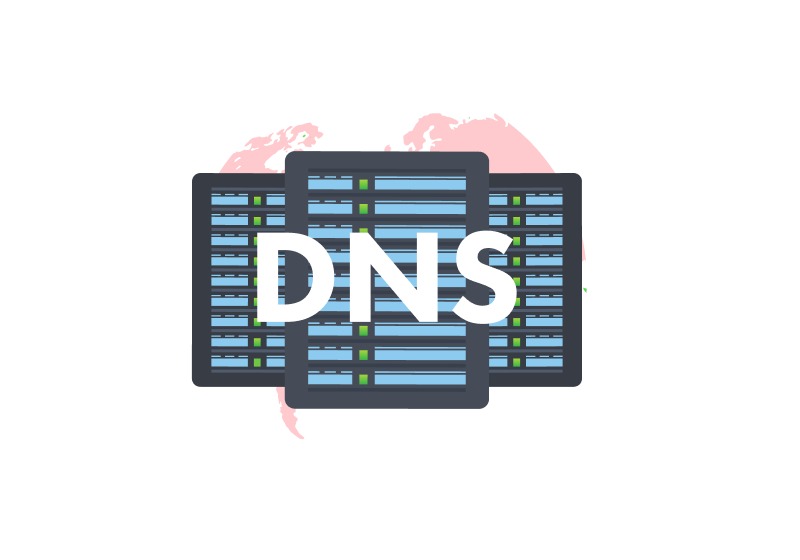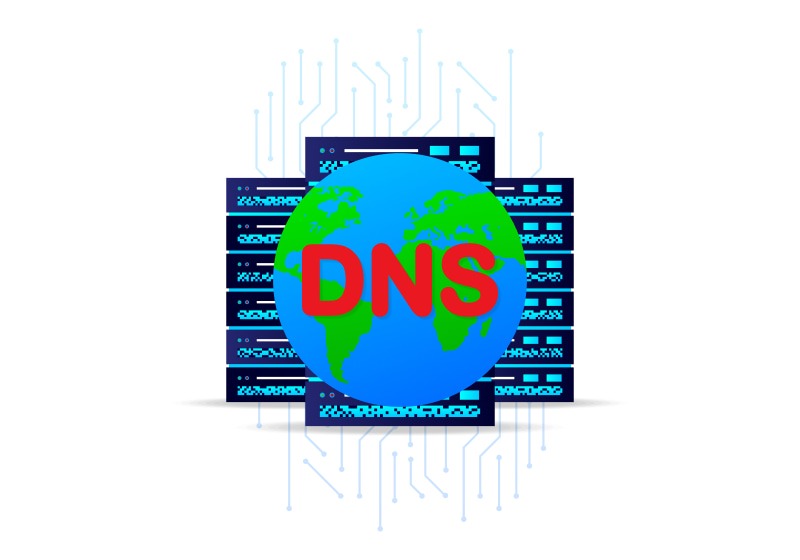
What is DNS? Meaning, History & Understanding the Mechanics
Do you think that DNS is just an acronym? But in reality, it is the magic behind every website visit. It is something more than just three letters. So, let’s learn about it in detail. We begin with the meaning. DNS is the unseeable engine of the Internet. The fact is that every site, email, or social media has its own host identity. Usually, it consists of many numbers that are difficult to remember. So, to make it easier to remember this address and quickly switch to it, Internet specialists created DNS servers. They are used to convert common domain names (such as Forbes.com) to these same network identities. It allows you to interact with the Internet conveniently and quickly. The history of DNS has decades of changes and improvements. It all started in 1983 when Paul Mokapetris proposed replacing complex IP addresses with understandable domain names. This concept quickly gained popularity. So, it led to the creation of the first DNS servers. And in fact, this is a very successful invention in the Internet sphere. After all, this is a critical element ensuring the convenience and ease of Internet use. The mechanisms of DNS are complex but, at the same time, interesting. When you type a URL into a browser, your computer first goes to a local DNS server. The request is forwarded to other DNS servers. In this way, it finds the necessary IP address your computer uses to connect to the website.
Definition and Meaning of DNS
Have you ever wondered how computers know which web page to load when you type in a URL? In such situations, the Domain Name System comes to the rescue. This fascinating technology is an “address book” of the Internet. Behind its clear domain name is the IP address. Servers understand it. Accordingly, it redirects you to the desired site. DNS meaning is critical for each user of the Internet. After all, it is a helper of the Internet. The fact is that each domain corresponds to a specific IP address. A user’s DNS query begins when they type a web address into a browser. The first step is to locate the IP address of a DNS server that can convert a domain to an IP address. After that, a series of queries between DNS servers takes place. It is until a matching record is suitable for the requested domain. In a world where website access is routine, DNS becomes an essential element. After all, it can also help filter and block access to specific resources. It makes it a necessary tool for Internet control and security. Thus, a domain name is a “translator” between human and computer languages. It provides convenience and speed of access to the World Wide Web. After all, you don’t need to remember IP addresses and search for them for a long time. All you have to do is enter the domain name into the search engine. Then, your computer will direct you to the site, mail, or blog you need.
Role in Translating Domain Names into IP Addresses
When you enter the site name (domain name), the computer does not understand you. But it knows the IP address. So, the translator (DNS server) knows which IP corresponds to the domain. You send a request to the translator, and it gives you an IP. Now you know where that site is on the “Internet map.” This way, your computer can connect to that point to load the page.
Importance of DNS in Internet Navigation
It is unlikely that you would like to remember the IP address of each site. Many numbers and letters are not very convenient to know. But if there was no DNS management, you probably had to do that. So, the importance of this in navigation is obvious. DNS makes internet navigation easier. You can use simple names like “google.com” instead of complex numbers. DNS also helps websites change their addresses without user effort. The whole importance of DNS is that it makes the Internet more convenient for all users.

DNS Management
The World Wide Web is increasingly becoming a space for billions of users. And among the invisible threads of this network, there are many new technologies. One of these is the Domain Name System. It allows you to turn your easy wishes into specific addresses. DNS management is a critically important component of modern Internet infrastructure. However, its role remains unclear to many users. But it is critical to know about it because millions of people use it daily. When entering a request online, you already use a domain name. It will be easier for you to use the Internet. DNS management includes the registration, allocation, and renewal of domain names. It also includes setting the parameters determining which server will be responsible for converting domain names to IP addresses. This task lies with web administrators, network engineers, and service providers. They play the role of real architects of this digital world.
DNS Configuration and Settings
Meticulous DNS configuration is the cornerstone of online presence. Organizations meticulously map domain names to IP addresses. Essential records like A, CNAME, MX, and TXT are good to facilitate services. It includes web hosting, email routing, and verification. Effective Time-to-Live (TTL) settings determine record caching duration. It influences responsiveness to changes. IPv4 and IPv6 compatibility guarantees broad accessibility. This way, it guarantees unwavering availability.
Popular DNS Management Tools
Two of the most popular tools today are BIND and PowerDNS. “BIND” (Berkeley Internet Name Domain) is among the oldest and best known DNS servers. It provides a high level of customization. But it needs deep knowledge for practical use. On the other hand, “PowerDNS” is good for its modularity and support for distributed DNS. It provides various customization options and integration with databases.
Security Considerations
DNS management security is critical to ensuring a safe network. One of the key aspects is choosing a reliable domain registrar. It enables the use of two-factor authentication and other access accounting methods:
- It is crucial to update your DNS records regularly and use strong passwords.
- Considering the use of DNSSEC allows you to avoid possible cyber attacks.
- When configuring DNS servers, you should limit access. Do it to only necessary services and IP addresses.
- And also use firewalls to block unwanted connections.
History of DNS
This innovation was started back in 1983. Then, DNS became a significant step in the improvement of Internet communications. But not everyone knows about the historical origins of this system. And few people know its evolution at the present stage. Once upon a time, an engineer was fascinated by an idea to improve Internet use. He wanted to replace confusing site addresses with simple, understandable words. Over the years, DNS has undergone various transformations. An important step was the introduction of a distributed domain management system. It allowed the registration of domains directly by their names. So, it contributed to the exponential growth of the Internet space. And it provides the creation of many new domain zones. Users who created their sites could quickly come up with a name for their website. Thus, it significantly disproved the sphere of the Internet. With the advent of e-commerce, DNS has become a competitive place. Because over time, companies began to fight for concise and memorable domains. It is how DNS meaning has gained great importance today, starting with simple ideas.
Early Beginnings of DNS
To look back to the ancient origins of DNS is to see the majesty of the Internet. Then, when the digital world was just beginning its journey, the need for a special system arose. There was a need to provide easy-to-understand domain names in exchange for complex IP addresses. This significant evolution took place thanks to the work of scientists and engineers. They have created different types of DNS. It provided a fundamental step towards the convenience of the Internet. So, it opened the door to endless possibilities in the online world.
Evolution and Changes Over Time
Over the years, DNS has seen an impressive evolution. It has transformed the way you interact with the Internet. Starting as a simple mechanism, DNS has become an integral part of the Internet. The changes included improvements to the servers’ speed, reliability, and scalability. And it also included the introduction of modern technologies. It includes DNSSEC, which protects against spoofing. So, domain zone extensions also contributed to the dynamic history of DNS. It has made it a vital element of the digital age over the years.
Impact of DNS on the Internet’s Growth
With DNS, users can easily refer to websites by their names. You no longer need to pay attention to difficult-to-understand IP addresses. In this way, it significantly affects the growth of the Internet. Thanks to this, the World Wide Web has gained convenience and efficiency. After all, DNS facilitates access to information. And it also contributes to the expansion of the online space.
DNS Servers
DNS servers are essential for people who want to use the Internet. It is also crucial for companies that need to be able to contact their customers. DNS servers take care of routing IP addresses through the appropriate network. It is with the help of a central server. It ensures that all requests made by clients reach the correct server. The primary purpose of DNS servers is to store information about domains. Different operators manage these servers. Since domain name systems work on a hierarchical basis, it resembles a tree. A tree has a top – the root zone. This zone is inconspicuously present in all domain names – a period. It is usually omitted when writing, for example, “facebook.com.” There are only 13 root servers. They contain information about first-level domains (ua, net, info, etc.).
How DNS Servers Work
When a user enters a URL, the query first goes to the resolver. It interacts with domain name systems. From this moment, the culmination of it starts. Servers check their database for a domain name match. Then, they return the corresponding IP address. This process allows you to find resources online easily. DNS servers work quietly, but they are the key chain. It ensures the smooth operation of the entire online world.
Primary and Secondary DNS Servers
Primary and Secondary DNS Servers are a dynamic duo. It ensures the stability and reliability of the network. The Primary server is responsible for converting domain names to IP addresses. It is for you to find resources on the Internet. If the Primary is not available, the Secondary goes to replace it. It provides continuous access to information. This redundant system ensures that you will continue to access the DNS servers even in unforeseen circumstances. This way, you can enjoy a smooth and seamless online experience.
Importance of Reliable DNS Servers
Reliable DNS servers play a significant role in your online life. They ensure the accuracy and speed of transitions between web addresses. That is, the safety of sites or those you go to depends on the reliability of the domain servers. Their optimally selected variants contribute to the acceleration of page loading. It improves security and protects against malicious attacks. Thus, choosing reliable DNS servers is vital. It is for a successful and secure online experience.

Types of DNS
The Internet seems like a limitless platform with many possibilities. Development in this area is exceptionally rapid. Every year, engineers come up with more and more innovative inventions. And one of the successful ones is domain names. They gained such popularity that they have dived into several types. And which ones exactly? Read on:
- Primary and secondary DNS servers Primary servers contain official domain data. And secondary servers are backups. They recreate the synchronization with the primary servers to ensure reliability.
- Distributed DNS servers They are large organizations and providers. It is for increased speed and scalability. They are in different regions of the world and share the load.
- Private DNS servers Corporate organizations can use their own DNS servers. It is to provide more control over access to your own web sites. It significantly increases the security of private sites, blogs, and so on.
- Caching DNS servers These servers keep copies of previous DNS queries. If you have already requested the domain before, the caching server can immediately return the response. It speeds up the process of loading web pages.
- Google Public DNS These DNS servers are trendy as public ones. They provide free access to their services. They offer faster DNS management. So they can filter out malicious content for added security.
Conclusion
So, you started to be interested in an online platform? Maybe you want to create your site and come up with a creative link for it? Studying domain names in this situation is a necessity. If you are aware of this, it will be easier for you to develop yourself in e-commerce. That is why studying DNS is essential and valuable. This mechanism is imperative to the functioning of the digital area. Without it, you wouldn’t be able to navigate between websites conveniently. DNS servers also help ensure security and optimize page loading speed. So, if you are an active Internet user, this information is necessary. Knowing this, you make it easier for yourself to use the Internet.
FAQ
-
How do I find my DNS?
To find your DNS, access your router’s admin page using a web browser. The DNS settings are often under the “Network” or “Internet” section.
-
What was the first DNS server and when was it implemented?
The first DNS server made its debut in 1983. Paul Mockapetris created it. He introduced a system that translated domain names into IP addresses. It simplified online navigation so much.
-
What is DNS Security?
DNS Security encompasses a series of protocols, practices, and technologies. It works cohesively to counteract potential cyber threats targeting the DNS. It ensures the reliability and security of domain name to IP address mappings.
-
Does every IP have a DNS?
No, IP addresses and DNS are distinct. DNS servers are responsible for translating domain names to IP addresses. But, multiple domain names can resolve to a single IP address. It means that not every IP has its own unique DNS.
-
Does changing DNS affect IP?
Changing DNS won’t impact your IP address. After all, your IP address doesn’t change just because you update your site name.



